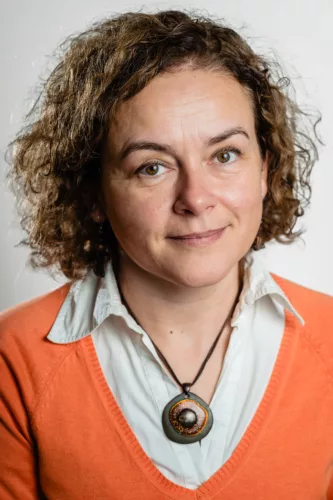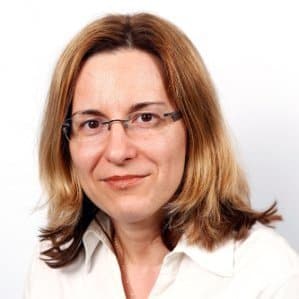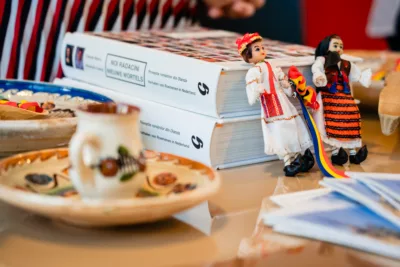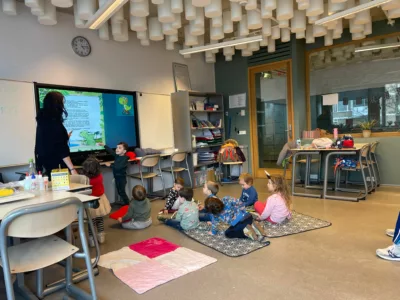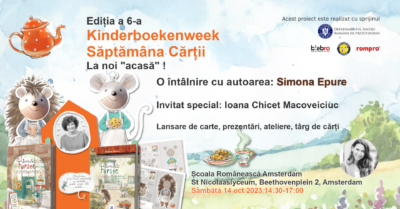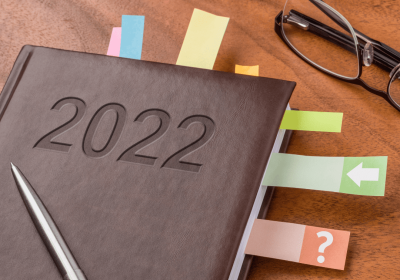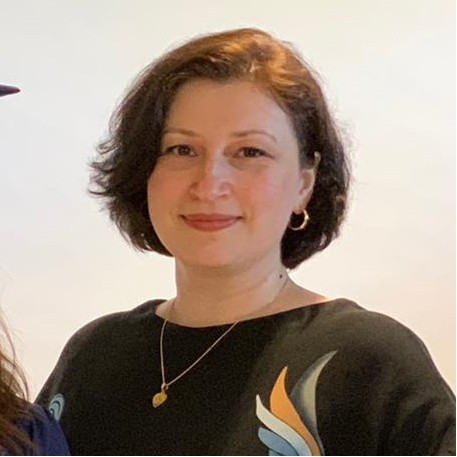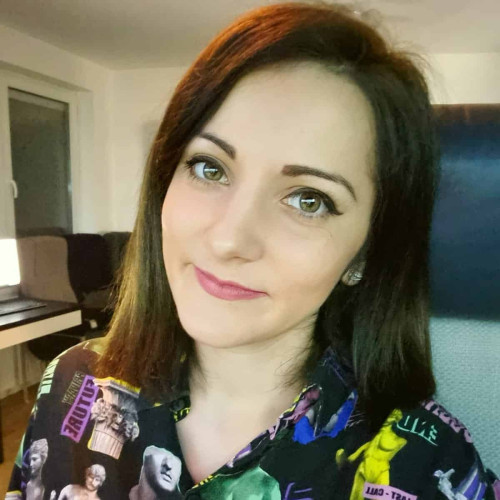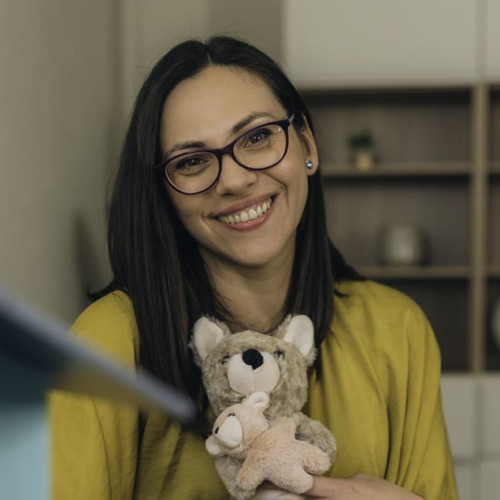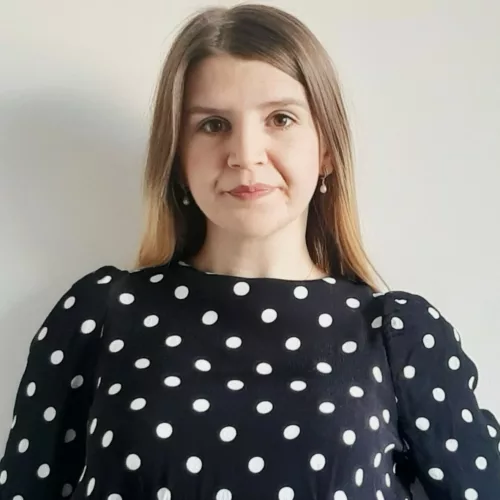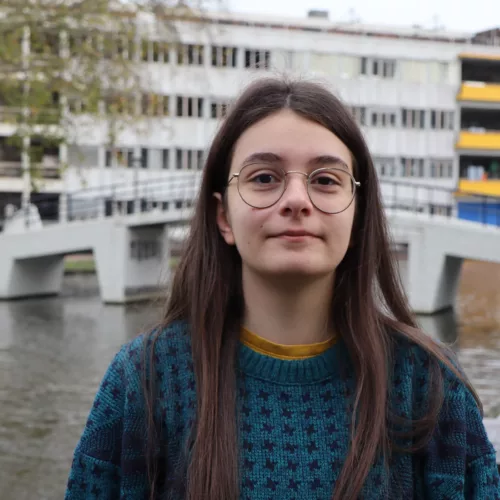The Romanian School Amsterdam is a weekend school for children and adults taught in Romanian.
Our motto: speak, think, feel Romanian.
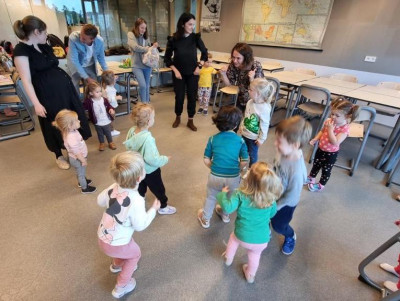
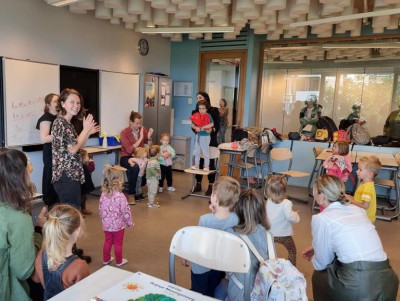
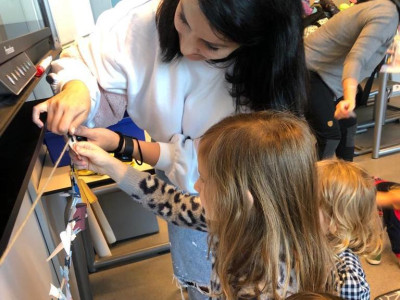
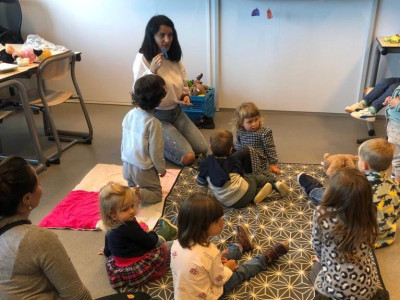
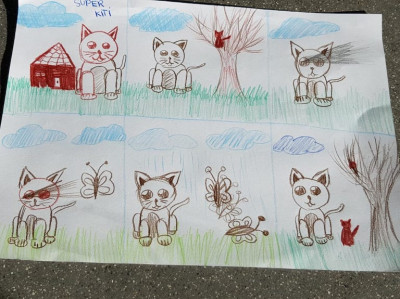
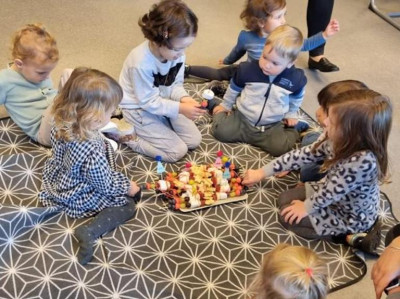
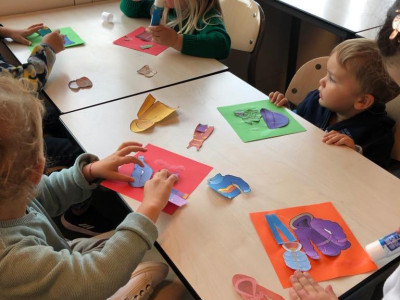
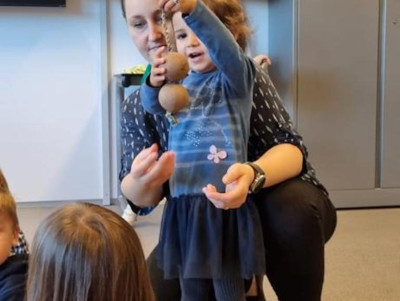
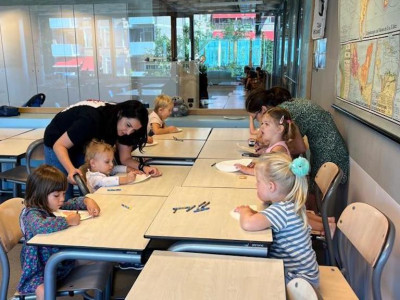
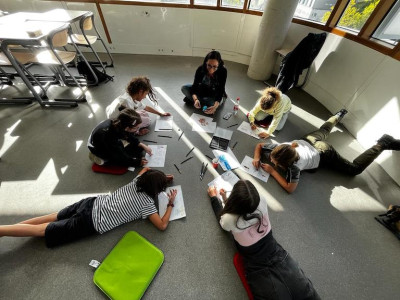
A soul project of ROMPRO Romanians For Romanians Netherlands Foundation, the School is in line with its mission, vision and objectives, and operates under the aegis of the Foundation, both legally and administratively.
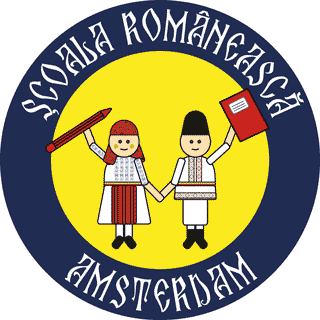
Based on an interactive and dynamic pedagogical concept, the School offers a variety of workshops, coordinated by Romanian teachers specialized in Romanian culture and civilization, plastic and dramatic arts, music and dance.
Through our courses and our dedicated teachers, we offer students a way to develop their Romanian language skills and introduce them to defining aspects of Romanian culture and customs.
Starting 13 November 2016, the Romanian School Amsterdam is mainly addressed to the Romanian and Moldovan community in Amsterdam and its surroundings, and through the Romanian language course for adults, including other nationalities.
Both children and parents are welcome to attend our courses, as the school is an opportunity to make friends, develop relationships and joint projects.
By participating in our workshops, children preserve their mother tongue, develop their ability to speak and write Romanian, learn about Romanian culture and traditions. On the occasion of traditional Romanian holidays we organize shows, competitions and thematic exhibitions. The stars, artists and creators of these events will be children.
Workshop programme - Module 13.01.2024 - 06.07.2024
19 workshops on Saturdays between 15:30 and 17:00. The price of the module is €190 (€10/workshop)
We'll be together on the following Saturdays: 13, 20 January - 3, 10 February - 2, 9, 16, 23 March - 6, 13, 20 April - 18, 25 May - 1, 8, 15, 22, 29 June - 6 July
The personal development workshop for pre-teens will be divided into 3-4 thematic series, with the possibility of registering for specific series only. Details of each theme are given below:
- Theme 1: How to have CONFIDENCE & COURAGE - 4 meetings (January 13, 20, and February 3, 10)
- Theme 2: How to be with MY EMOTIONS & EXPRESS HEALTH - 4 meetings (March 2, 9, 16, 23)
- Theme 3: HOW TO COMMUNICATE ASSERTIVELY & COOPERATE - 3 meetings (6, 13, 20 April)
- Theme 4: How to be CREATIVE & FLEXIBLE - 4 meetings (18, 25 May, and 1, 8 June).
Age 2.5 - 5 years
Dwarf workshop
The module consists of 19 lessons (€10 / workshop)
Age 5 - 8 years
Romanian Language and Culture
The module consists of 19 lessons (€10 / workshop)
Age 8 - 12 years
Personal development workshop for pre-teens
The module consists of 19 lessons (€10 / workshop)
Inactive or ad-hoc workshops
Atelier Deventer - Romanian Language and Culture (archive)
Atelier Deventer - Romanian Language and Culture (archive)
This workshop is not available. Archive
Coordinator:
Age group: 5-10 years
Location: Peuterspeelzaal Trapje Op, Brinkpoortstraat 7 Deventer 7411 HR
For registration contact sra@rompro.nl.
Objectives
- Familiarizing children with the Romanian language and culture, presenting a rich educational and cultural program, using playful and creative working methods.
- Thus, you get in touch with stories, songs, games, customs and Romanian traditions.
- Promoting, learning and deepening the Romanian language, culture and spiritual values.
- Encouraging a sense of belonging to a culture and community in the context of belonging to and contact with other cultures.
Benefits
- Development of oral and written communication skills in Romanian;
- Creating the basic automatisms and structures of the Romanian language;
- Learning Romanian songs and poems;
- Acquiring knowledge of Romanian geography, history, traditions and customs.
Working methods
- During the courses, various themes of everyday life and Romanian culture will be dealt with in a playful way, and the methods vary according to the children's ages and their ability to understand.
- Through didactic play, conversation, reading, explanation and role-playing, Romanian language and culture will be learned easily and with pleasure.
- Teaching materials will include worksheets and worksheets, stories, illustrations, videos, CDs, DVDs.
Guiding themes
- Who am I?
- Discover new friends and new things;
- The magic of autumn (autumn paths, autumn basket, flowers, fragrance, colour);
- Me and my world (body, senses, family);
- Reading, part of my life;
- Winter in pictures and words;
- Traditions and customs around the winter holidays.
Parents' workshop (ad-hoc)
Parents' workshop (ad-hoc)
This workshop is ad hoc. Follow us for details
Coordinator: Cătălina Robu
- Special guests
- Parties
- Workshops
Cătălina Robu
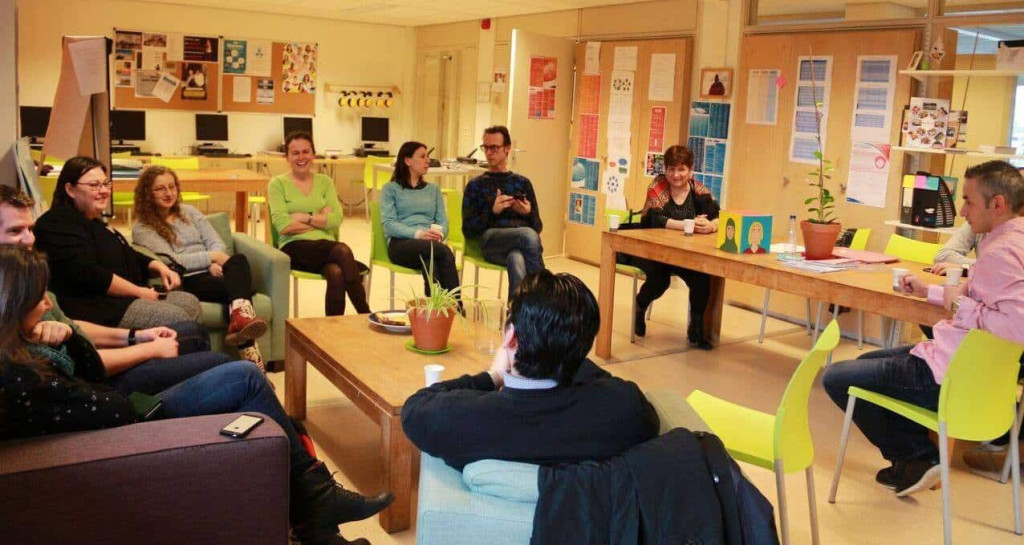
Romanian language (adults)
Romanian language (adults)
This workshop is currently not available
Coordinator: Gia Crișan
Age group: 16+ years
The workshop is aimed at all those who want to acquire Romanian language skills. Lessons are structured according to difficulty level.
Objectives:
- acquiring basic knowledge of the Romanian language;
- familiarisation with the pronunciation of the specific sounds of the Romanian language;
- developing the ability to understand simple contexts;
- developing the ability to respond appropriately to different situations presented during lessons;
- assimilation of a basic vocabulary.
Benefits:
- pronunciation;
- vocabulary and basic knowledge.
Gia Crișan
Methods:
The communicative method is mainly used, and the most used language will be Romanian. If necessary, explanations can also be given in English, French or Dutch. Each lesson will be accompanied by cultural information.
Pilot Programming Workshop - temporary
Pilot Programming Workshop - temporary
This workshop is currently unavailable
Coordinator: Carmen Podar
Age: 7-12 years
In June 2023, for 4 weekends, we are organising a pilot programming workshop for children aged 7-12.
This workshop is coordinated by Carmen Podar, founder of Logiscool Netherlands. Carmen has over 16 years of programming experience and started learning programming at the kids club in her hometown. She then went on to Computer Science High School and the Faculty of Computer Science.
After coming to the Netherlands, Carmen realised how early access to programming had influenced her career and decided to open Logiscool Netherlands. Her goal is to give children the opportunity to understand technology and use it consciously and usefully.
Logiscool Netherlands offers a variety of programming courses for children of all ages in a fun and educational way. Carmen and her team are passionate about helping children become active creators of technology and learn how to use technology in creative and innovative ways.
In addition, Carmen and her team place a big emphasis on the online community, where students can share ideas and receive feedback from other students and teachers.
The price is €10/workshop. To register, please send an email to sra@rompro.nl with child's name, date of birth, address, parent's name, mobile phone and email, no later than 20 May, specifying only the child's name.
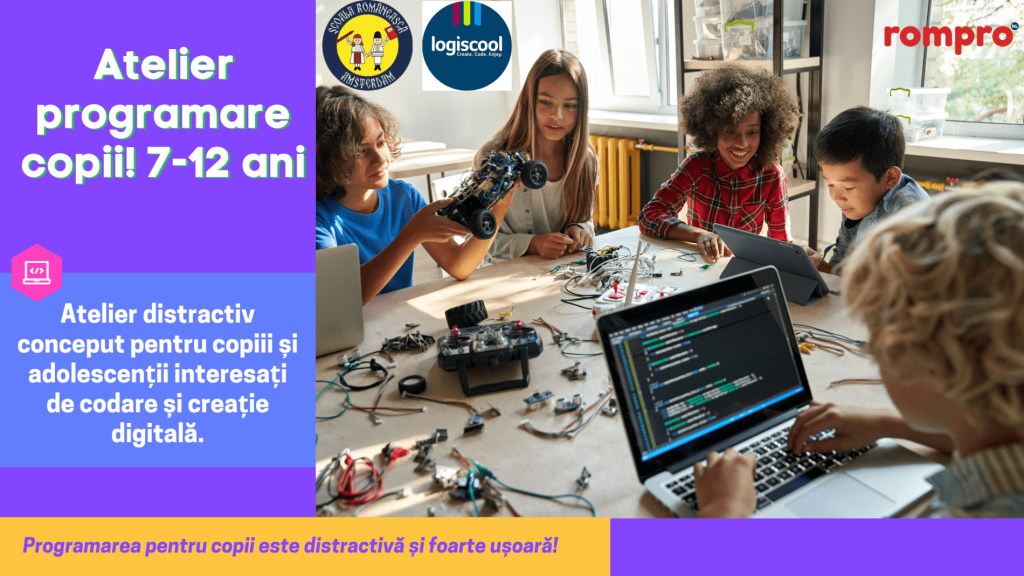
Articles / School diary
Retrospective Romanian School Amsterdam 2023
Today, we invite you to travel back in time and...
Read MoreChildren's Book Week (Kinderboekenweek) 2023
Welcome home to the Fursec mouse! We'll be exploring right away...
Read Moreteam
Ana-Maria Murariu
Cătălina Robu
Eliza van Peppen
Alexandra - Susana Amarandei
Irina Ioana Calota
Raluca Ezaru
Mara Georgescu
Contact
"(Câmp obligatoriu)" indicates required fields
Project realized with the support of the General Secretariat of the Government - Department for Romanians Abroad. (www.dprp.gov.ro).


